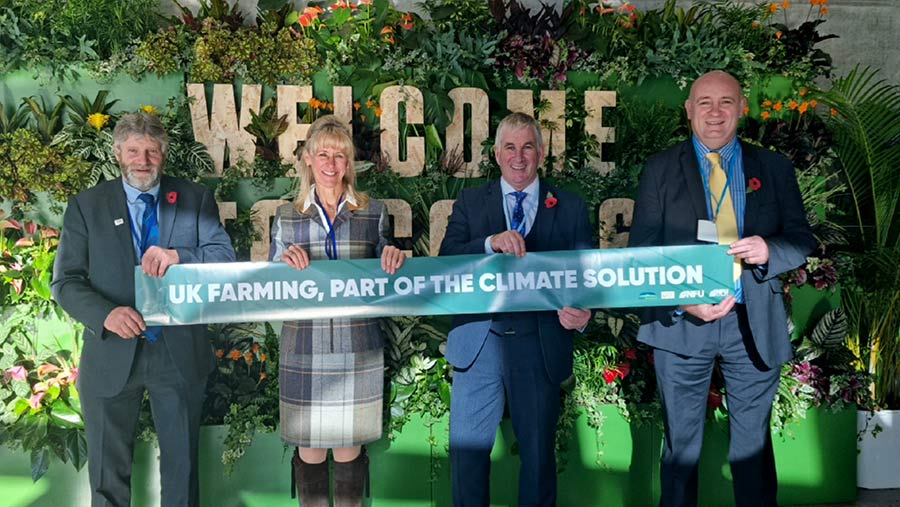COP26: Unions seek more government support for farming
 Martin Kennedy, Minette Batters, Victor Chestnutt, John Davies © NFU Scotland
Martin Kennedy, Minette Batters, Victor Chestnutt, John Davies © NFU Scotland Four UK farming union presidents have called on the UK governments and global leaders at the COP26 climate talks to support a sustainable and productive future for farming.
The NFU, NFU Cymru, NFU Scotland and Ulster Farmers’ Union (UFU) presidents joined forces to issue a single statement at the talks, held in Glasgow this week.
The statement was signed by Minette Batters (NFU), John Davies (NFU Cymru), Martin Kennedy (NFUS), and Victor Chestnutt (UFU).
It urged all governments “to support a sustainable and productive future for agriculture, growing our ability to produce climate-friendly food at the same time as protecting nature and the planet”.
See also: COP26: Industry reacts to pledge to cut methane emissions
The statement explained that UK farming was a uniquely versatile sector which supplied food, captured and stored carbon and helped to generate clean energy.
“But our farmers are also on the frontline of climate change impacts, being particularly vulnerable to extreme weather events,” the statement said.
“We want agriculture’s role in taking action on climate change while producing for the future to be widely recognised, at COP26 and beyond.”
Farmer partnership needed
The presidents emphasised that farmers harnessed inherently variable, biological processes in their crops, livestock and soils.
But they said farmers should be supported in partnership with government and industry to produce more with less environmental impact.
“It is vital that agriculture, land use and biodiversity policies are practical and properly funded, with a portfolio of measures across many different farm types.”
These should include a fair share of water and better protection of agricultural land from flooding.
The union leaders concluded that adopting a holistic approach to farming – considering food production, biodiversity, landscapes and communities alongside climate mitigation – would ensure a just transition to net-zero farming in the future.
